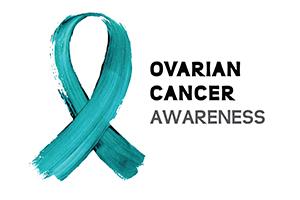
World Ovarian Cancer Day
Nearly 70 % of ovarian cancers are not discovered until they have reached an advanced stage III or later when it is more difficult to treat and can be fatal. Dr Kiran Coelho, gynaecologist and obstetrician, counsels women, particularly those at high-risk, to undergo regular ovarian cancer screening to be safe.
1. What is the rate of incidence of ovarian cancer among Indian women?
The incidence of ovarian cancer has shown an increasing trend in India in the last 20 years. Although it depends on various factors, roughly the incidence is estimated to be 0.9 to 8.4 per 100,000 person years amongst various registries. The highest incidence was noted in Pune and Delhi registries.
2. Why is it that doctors say that ovarian cancer is the worst of female cancers?
Between 70 and 75% of ovarian cancers are not discovered until they have reached an advanced stage III or later. Efforts should therefore be concentrated on earlier diagnosis.
Mass screening for ovarian cancer is not currently possible because of a lack of specific markers for use in biological and imaging techniques, although new markers are now being developed. Ovarian cancer often goes undetected until it has spread within the pelvis and stomach. At this late stage, ovarian cancer is more difficult to treat and can be fatal. In simple words, like we have the PAP smear to detect CERVICAL cancer at an early stage, no such effective screening test is available for ovarian cancers.
3. At what age are women most likely to get ovarian cancer?
Ovarian cancer is rare in women under the age of 40. Fifty per cent of all cases of ovarian cancer are found in women aged 63 or older. You’re more likely to develop it after you reach menopause.
4. What are the early warning symptoms of ovarian cancer?
Ovarian cancer often has no symptoms in the early stages
The most common symptoms of ovarian cancer are:
- feeling constantly bloated
- a swollen tummy
- discomfort in your tummy or pelvic area
- feeling full quickly when eating, or loss of appetite
- needing to pee/urinate more often or more urgently than normal
Other symptoms of ovarian cancer can include:
- persistent indigestion or nausea
- pain during sex
- a change in your bowel habits
- back pain
- vaginal bleeding – particularly bleeding after the menopause
- feeling tired all the time
- unintentional weight loss
5. Is there any sort of test or screening for ovarian cancer?
A number of tests have been evaluated as potential methods of screening for ovarian cancer. Screening tests with the greatest amount of clinical test data supporting their use include transvaginal ultrasound and the blood test for the serum marker CA-125. (Serum markers are substances in the blood that can be detected in blood tests.)
While it is not clear that ovarian cancer screening will result in a decrease in the number of deaths in women at inherited risk, those who have mutations in ovarian cancer susceptibility genes (women who have first degree relatives with ovarian or breast cancer) should undergo ovarian cancer screening using a combination of transvaginal ultrasound and CA-125 testing. Screening should generally begin between ages 30 and 35. These women with family history of ovarian or breast cancers should also undergo genetic counselling and if required testing for common genes involved in this familial predisposition like BRCA1 and BRCA2.
6. What percentage of ovarian cancer is diagnosed in Stage 1?
In stage 1, the cancer has not spread beyond the ovaries. Only 15% of all ovarian cancers are found at this early stage.
7. What is the survival rate for ovarian cancer?
Ovarian epithelial cancer (malignant cells form in the tissue covering the ovary) is the most common type of ovarian cancer.
Below is the relative five-year survival rate for epithelial ovarian cancer:
| Stage | Survival Rate |
|---|---|
| 1 | 90% |
| 1A | 94% |
| 1B | 92% |
| 1C | 85% |
| 2 | 70% |
| 2A | 78% |
| 2B | 73% |
| 3 | 39% |
| 3A | 59% |
| 3B | 52% |
| 3C | 39% |
| 4 | 17% |
8. Who is most at risk for ovarian cancer?
Factors that may increase the risk of ovarian cancer:
- Age: Two-thirds of women diagnosed with ovarian cancer are age 55 or older
- Childbearing status: Women, who have delivered at least one child, especially before age 30, are at a lower risk for developing the disease. The more children a woman has, the more her ovarian cancer risk declines. Women who breastfeed further reduce their risk.
- Obesity: Women with a body mass index (BMI) of 30 or greater may have a higher risk of developing ovarian cancer.
- Breast, colorectal or endometrial cancer: Women who’ve been diagnosed with one of these cancers have a higher risk of developing ovarian cancer
- Genetic mutations: Some women who develop ovarian cancer have an inherited mutation on one of two genes called breast cancer gene 1 (BRCA1) and breast cancer gene 2 (BRCA2). Women with the BRCA1 mutation, have a 35 to 70 per cent higher risk of ovarian cancer. Women with the BRCA2 mutation have a 10 to 30 per cent higher risk. However, the vast majority of women who are diagnosed with ovarian cancer don’t have either mutation. If you are concerned about this risk factor for ovarian cancer, you can discuss getting tested for both of the BRCA mutations with your OB-GYN
9. What are the treatment options?
The treatment options usually depend on the stage at which ovarian cancer is diagnosed. Stage 1 is considered early stage and here surgery is often the mainstay of treatment followed by chemotherapy if required.
In later stages, depending upon the spread of the cancer and the size either chemotherapy is given initially to reduce the size of the tumour followed by surgery or surgical debulking is done first followed by chemotherapy. Patients who are not fit for surgery may be given chemotherapy and considered for surgery later, or treated primarily with chemotherapy.
The aim of surgery is to confirm the diagnosis, define the extent of disease, and resect all visible tumours.
10. Can individuals take any preventative measures to reduce their risk of ovarian cancer?
There are several ways you can reduce your risk of developing epithelial ovarian cancer. Much less is known about ways to lower the risk of developing germ cell and stromal tumours of the ovaries.
Oral contraceptives
Using oral contraceptives (birth control pills) decreases the risk of developing ovarian cancer, especially among women who use them for several years. Women who used oral contraceptives for 5 or more years have about a 50 per cent lower risk of developing ovarian cancer compared with women who never used oral contraceptives. Refer CDC guidelines on Oral contraceptives and Ovarian Cancer Prevention
Gynecologic surgery
Both tubal ligation and hysterectomy may reduce the chance of developing ovarian cancer, but experts agree that these operations should only be done for valid medical reasons -- not for their effect on ovarian cancer risk.
Prevention strategies for women with a family history of ovarian cancer or BRCA mutation
If your family history suggests that you (or a close relative) might have a syndrome linked with a high risk of ovarian cancer, you might want to consider genetic counselling and testing. During genetic counselling (by a genetic counsellor or other health care professional with training in genetic risk evaluation), your personal medical and family history is reviewed. This can help predict whether you are likely to have one of the gene mutations associated with an increased ovarian cancer risk.
Research update: Blood Tests for Early Detection of Ovarian Cancer











